The other day, I saw yet another online quiz that discerned in 5 questions whether a person was a tourist or a traveler. I answered my way through it, confident that my responses will confirm that I embody the characteristics of the latter. After all, I have avoided being herded around in big bus excursions, have stayed in quaint homes of complete strangers, and have had tea with a band of Bedouins at the foot of Mount Sinai. But as I scored my answers, the quiz slowly but firmly designated me as being more of a tourist. This outcome upset me. Just because I go on a trip with a well-researched itinerary, at least 2 cameras and the intention of posting my adventure on Facebook it doesn’t mean I’m the same league as the folks who gallantly try to keep the Leaning Tower of Pisa from collapsing with the strength of their arms, at least in their photos. I started reasoning to the sleeping cat at my feet why I thought this test was flawed. I can’t possibly be a tourist.
Or can I?
But more importantly, should it really matter?
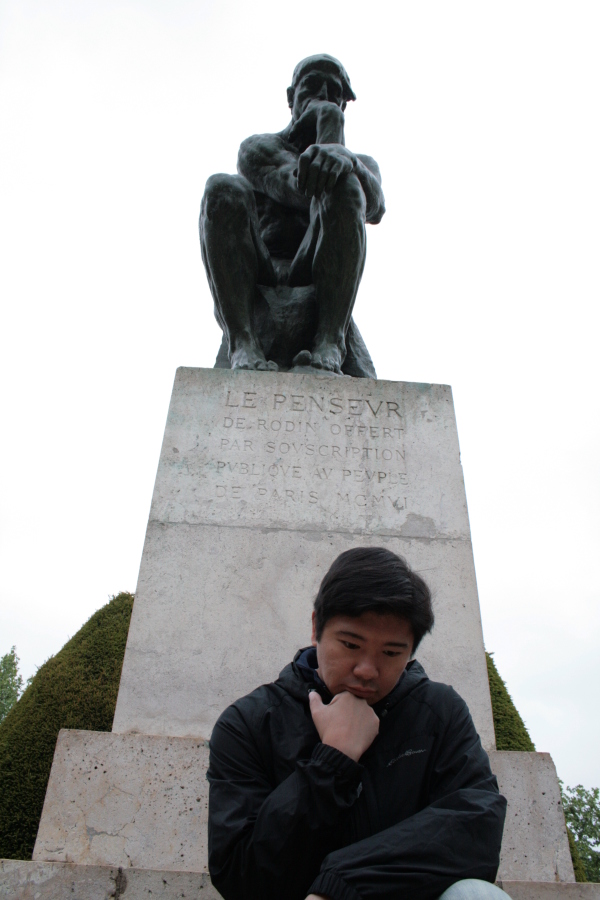
The Thinking Tourist
A brief history of travel and tourism
Leaving one’s home to explore new places has been part of human civilization from the ancient times. People have always sought out to see what’s beyond their own city walls, ports, or front doors. As monuments, shrines, and other attractions were built, kibitzers from the next village, town or empire over wanted to lay eyes on something that they’ve never seen before. Through the centuries, as means of transportation developed, more and more people stepped out into the world to explore.

Portrait of Douglas, 8th Duke of Hamilton, on his Grand Tour with his physician Dr John Moore and the latter’s son John. A view of Geneva is in the distance. (Artist: Jean Preudhomme, Source: Wikipedia)
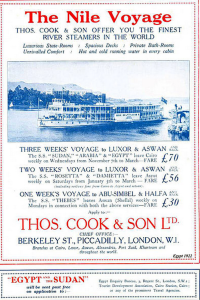
Thomas Cook & Son advertisement
A fine line between traveler and tourist
Between consumers of all inclusive vacation packages and the hipsters who see bathing as an elitist chore, there are is a wide spectrum of people who take to the open road. You have the American cruise veteran, the British luxe traveler, the Filipino budget backpacker, the Australian on a 6-month-walkabout, the Chinese woman and her group tour posse, and everyone in between.
The term tourist has commonly been used, at least in American and Western cultures, as referring to someone who comes to a destination with a certain set of identifying characteristics: camera hanging around the neck, holding a map in hand, lining up for hours to get into a popular attraction, and generally staying within a designated itinerary. On the other hand, a traveler is typically depicted as a rugged looking individual carrying around an enormous backpack, wandering the back alleys before taking the local bus to the hostel then later found sitting in a locals only bar.
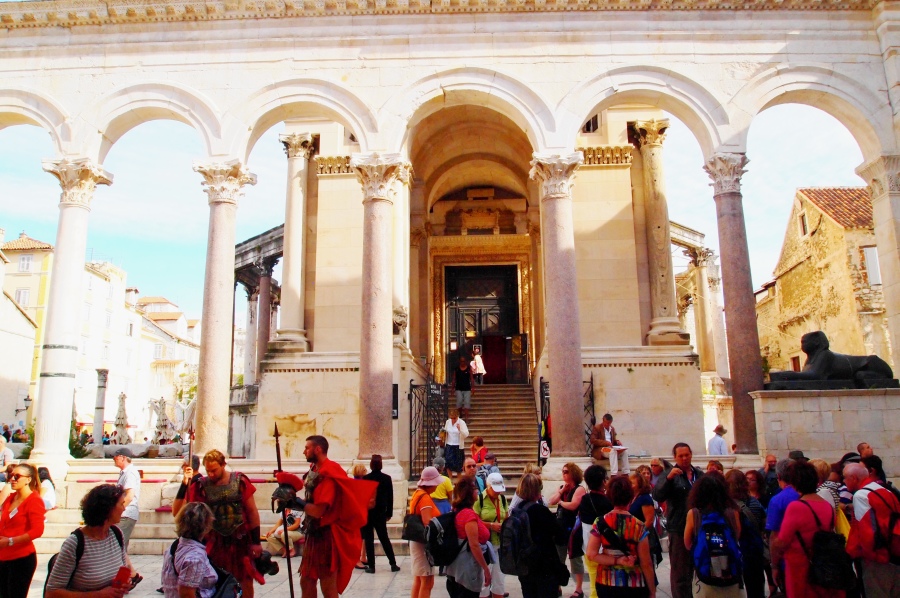
Tourists at Diocletian’s Place, Split, Croatia
The main point that many have tried to make is the difference in how a traveler and a tourist experiences a destination. It is argued that a tourist tends to have an agenda, taking in only the must-see sites, snapping selfies in order to prove that they’ve been there, and lapping up trinkets for souvenirs. They are viewed as being unwilling to step out of their comfort zone to explore the new culture in front of them. They are faulted for wanting to relax and lay out in the sun or eating at restaurants with English menus. The traveler is viewed as an adventurer who attempts to get to know a place and its people more intimately, goes off the beaten path, foregoes plans, eschews schedules (and, sometimes, personal hygiene) and lets the wind take him or her where it pleases.
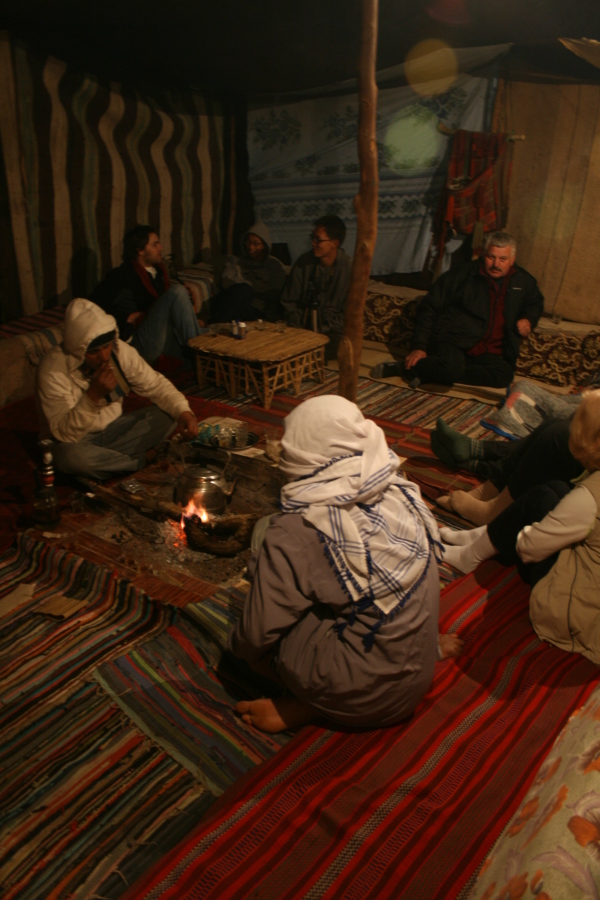
Travelers having tea at a Bedouin camp in Mount Sinai
Kanya-kanyang trip lang yan (To each her own)
These categorizations tend to box people in, when in fact one can have traits that are associated with either being a tourist and a traveler. It also fails to take account the personality and circumstances of the individual and how her particular preferences and quirks influence how she takes on a destination. While traveling is supposed to be a personal and subjective exercise in freedom of movement, travel snobs cling to their own dogma and malign anyone who dares step out in any other way. So what if a you are a part of 100-person tour group who follows the guide holding up an umbrella like a war flag? Who cares if you use an iPad to take a selfie with the Eiffel Tower? There is no one correct way of seeing the world. Both travelers and tourists are out spending their own hard-earned money on a break from their everyday lives, and should very well do as they please.

Do the white sneakers cancel out the awesomeness being in Machu Picchu?
The one caveat I have to this argument is this: if people are not exposed to or aware of traveling any other way than what they’re used to, it’s perfectly acceptable to offer them suggestions and recommendations to try something new and different. If you’ve been brought up in a family who stayed only in hotels, I would encourage you to try and see how staying at a bed and breakfast suits you. If you’ve stayed away from touristy places, why not venture into it as a social experiment to see if a shopkeeper can break you and make you buy a souvenir? If your idea of traveling to America is going on an annual pilgrimage to California, how about exploring the rich culture of the South for a change?
Now, having given these options, I let you, fellow Viajera, decide what road to take. Feel free to try it out and see how it suits you. If it doesn’t work out, by all means return to the mode that makes you happy. There should be no shaming nor coercing. Kanya-kanyang trip lang yan. To each her own.
Even as I come to terms with the fact that, based on the popular descriptions, I am part-tourist and part-traveler, I’ve decided not to allow labels dictate to me who I am, where I should go and how I should do things. Let’s not lose sight of what’s most important: going out there and experiencing the world for ourselves.
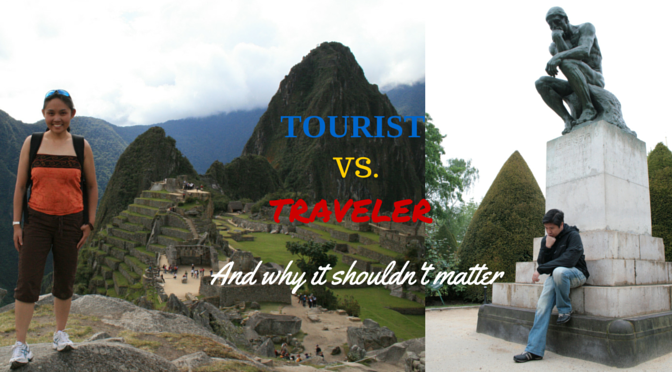

Well put, Tessa. When I wad alone, I did the tour group thing. When with husband, explore more, Nothing wrong with seeing world-famous sights, nothing wrong with walking the unknown. =)
Thanks, Zen! Nothing wrong at all with either way. As we all grow and mature as tourists/travelers, our preferences or circumstances may change. Ultimately, it’s what we do with the experiences that we accumulate while we travel that makes a difference.